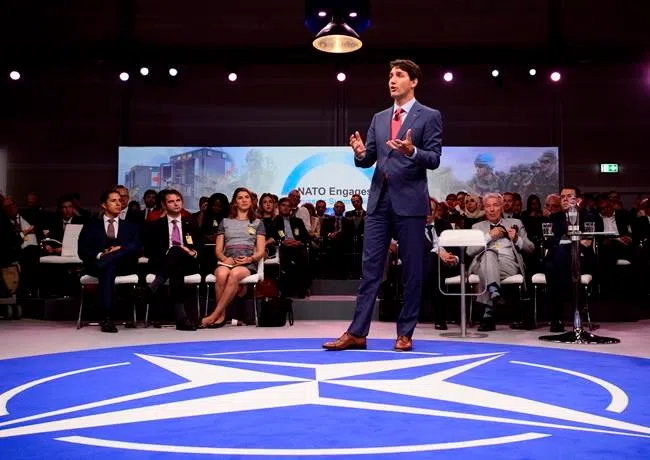
With Trump looming at NATO summit, Trudeau unveils new training mission in Iraq
Canada is taking the lead of a new NATO training mission in Iraq, Prime Minister Justin Trudeau revealed Wednesday, stocking up his political armoury should U.S. President Donald Trump try to cast doubt on his Liberal government’s commitment to the global military alliance.
The Iraq endeavour marked Trudeau’s second announcement involving Canada’s military in as many days; on Tuesday, he declared that the Canadian Forces would continue to lead a NATO battle group in Latvia through 2023.
Both were delivered in advance of what’s been billed as a tense meeting of NATO leaders — including Trump himself, whose tweets and public statements in recent days have fuelled expectations that he will excoriate Canada and other allies for not spending enough on defence.
Trump wants NATO members to spend two per cent of their GDP on defence by 2024, a target agreed to by the alliance’s members in 2014. Canada’s defence spending is only expected to reach 1.4 per cent of GDP.


